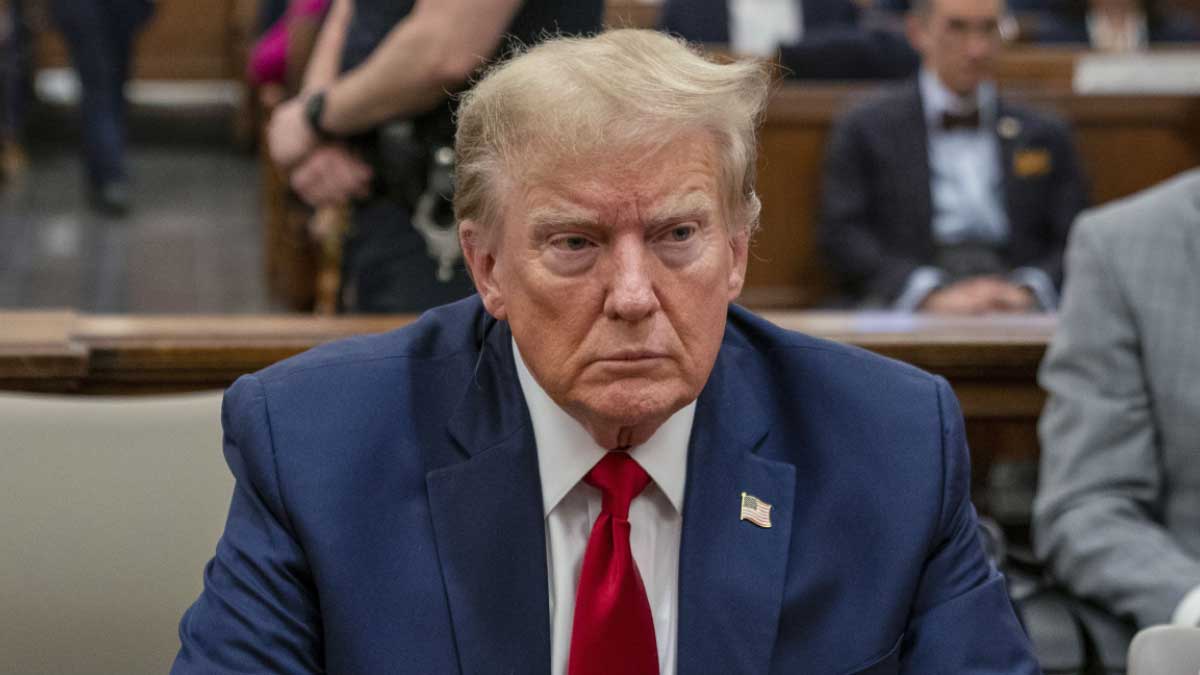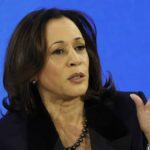- Home
- Billionaires
- Investing Newsletters
- 193CC 1000
- Article Layout 2
- Article Layout 3
- Article Layout 4
- Article Layout 5
- Article Layout 6
- Article Layout 7
- Article Layout 8
- Article Layout 9
- Article Layout 10
- Article Layout 11
- Article Layout 12
- Article Layout 13
- Article Layout 14
- Article Sidebar
- Post Format
- pages
- Archive Layouts
- Post Gallery
- Post Video Background
- Post Review
- Sponsored Post
- Leadership
- Business
- Money
- Small Business
- Innovation
- Shop
Recent Posts
Judges Question Trump’s $450 Million Fraud Fine

A New York appeals court is considering a significant judgment against former President Donald Trump and his business associates in a civil fraud case, raising questions about the appropriateness of a $450 million fine levied against them. During a hearing, judges expressed concerns that the New York attorney general’s office may have overstepped its legal authority in prosecuting Trump for allegedly inflating the value of his assets on financial statements to secure better business deals and create a misleading perception of his wealth.
The five-judge panel reviewed arguments on Thursday regarding the ruling made by New York State Judge Arthur Engoron in February. Judge Engoron found Trump and his associates liable for fraud, leading to a judgment that required them to pay more than $464 million, which included $454.2 million in direct penalties against Trump, plus accrued interest. This ruling was based on findings that Trump and his associates had intentionally misrepresented the value of their assets to gain favorable terms on loans and other financial transactions.
In defense of Trump, his lawyers argued that the ruling should be overturned because no actual harm resulted from the allegedly inflated valuations. They contended that all business partners were compensated in full and that the financial records in question were accurate. Trump’s legal team maintained that because there was no demonstrable damage, the ruling was unjust.
On the other hand, New York Attorney General Letitia James’ office maintained that the law under which Trump was charged does not necessitate proof of harm. However, the judges indicated that there need to be constraints on the attorney general’s power, suggesting that state intervention should not interfere with private business dealings between equally sophisticated parties. Justice Peter Moulton emphasized the necessity for limitations on the extent to which the attorney general can intervene in private business transactions.
The judges further questioned the substantial penalty imposed, expressing that “the immense penalty of this case is troubling,” particularly since businesses involved in transactions with Trump reportedly left “happy.” They suggested that the calculation of the fine might have been excessive and that different methods of evaluation could yield a significantly lower amount. This line of questioning reflects a broader concern about the proportionality of the sanctions relative to the alleged wrongdoing.
In response, Deputy Solicitor General Judith Vale, representing the attorney general’s office, defended the state’s position by arguing that the sizable fine was warranted given the “enormously favorable” business terms that Trump and his associates received by using inflated asset valuations. Vale also pointed out instances where companies ceased doing business with Trump due to the discovery of misstatements, reinforcing the idea that the fraud was not just theoretical but had real-world implications.
During the hearing, the judges also challenged Trump’s attorney, Dean John Sauer, pointing out inconsistencies in his arguments that conflicted with earlier rulings issued by the appeals court in this case. They queried Sauer on why, if Trump believed harm was necessary to establish liability for fraud, the statute did not explicitly require such evidence. Furthermore, they examined how the Trump Organization assessed the value of the Mar-a-Lago estate, noting that restrictions on the property’s deed contradicted Trump’s claim that it was a private residence. Sauer defended Trump’s position by asserting that the estate had indeed been used as a private residence since 1995.
As the appeals court deliberates, the timeline for a ruling remains uncertain. If the judges uphold Judge Engoron’s earlier decision, Trump and his associates—including his sons Eric and Donald Trump Jr.—could face additional sanctions beyond the monetary penalties, which may include temporary bans from conducting business in New York. Trump retains the option to escalate the case to New York’s highest court if he is unsuccessful in the appeals court, although interest on the judgment will continue to accumulate during this process.
Currently, Trump faces a total liability of $478.3 million in this civil fraud case, factoring in interest that compounds at a rate of 9% annually. This amounts to approximately $111,984 per day, $3.4 million per month, and around $40.9 million per year. Since the initial order in February, more than $24 million in interest has accrued, underscoring the urgency of the appeals process as it could significantly increase the amount he owes if he loses.
Forbes currently estimates Trump’s net worth at approximately $3.7 billion, ranking him as the 937th richest person globally. The majority of his wealth derives from his stake in Trump Media and Technology Group, which owns Truth Social, alongside various real estate investments. However, Forbes also reports that Trump has only about $413 million in cash and liquid assets available, raising questions about his capacity to pay the judgment if the appeal fails. The situation could necessitate selling shares in his media company, despite Trump’s assertion that he has no plans to do so.
In addition to the civil proceedings, this case has spawned criminal charges against Allen Weisselberg, the former CFO of the Trump Organization. Weisselberg pleaded guilty to perjury based on testimony linked to this civil case and was sentenced to five months in prison. He was released early for good behavior after serving just 100 days. His testimony revealed inconsistencies regarding the size of Trump’s Trump Tower penthouse, which had been significantly exaggerated in financial documents.
New York Attorney General Letitia James filed the civil suit in 2022, alleging that Trump, his associates, and his businesses had misrepresented asset values over 200 times in a decade. These inflated figures were used to secure advantageous loan terms and to project a higher net worth, claims that Trump has vehemently denied, attributing any discrepancies to his organization’s accountants rather than himself or his sons. The case has been contentious, with Judge Engoron previously ruling that there was substantial evidence of fraudulent misstatements made by Trump and his associates for personal gain. The outcome of this appeals court case could have significant implications for Trump’s financial future and business operations.
Recent Posts
Categories
- 193 Countries Consortium Partner1
- 193cc Digital Assets2
- 5G1
- Aerospace & Defense48
- AI37
- Arts3
- Banking & Insurance11
- Big Data3
- Billionaires1,467
- Boats & Planes1
- Business332
- Careers13
- Cars & Bikes79
- CEO Network1
- CFO Network17
- CHRO Network1
- CIO Network1
- Cloud10
- CMO Network18
- Commercial Real Estate7
- Consultant1
- Consumer Tech194
- CxO1
- Cybersecurity73
- Dining1
- Diversity, Equity & Inclusion4
- Education7
- Energy8
- Enterprise Tech29
- Events11
- Fintech1
- Food & Drink2
- Franchises1
- Freelance1
- Future Of Work2
- Games149
- GIG1
- Healthcare79
- Hollywood & Entertainment203
- Houses1
- India’s 1000 Richest1
- Innovation46
- Investing2
- Investing Newsletters4
- Leadership65
- Lifestyle11
- Manufacturing1
- Markets20
- Media327
- Mobile phone1
- Money13
- Personal Finance2
- Policy569
- Real Estate1
- Research6
- Retail1
- Retirement1
- Small Business1
- SportsMoney42
- Style & Beauty1
- Success Income1
- Taxes2
- Travel10
- Uncategorized14
- Vices1
- Watches & Jewelry2
- world's billionaires1,436
- Worlds Richest Self-Made Women2
Related Articles
South Korea Plane Crash: A Tragic Loss and Global Mourning
The tragic plane crash at South Korea’s Muan International Airport on Sunday...
By 193cc Agency CouncilDecember 30, 2024H-1B Visa Debate Splits Trump Allies and Silicon Valley
The debate over H-1B visas has once again become a contentious issue,...
By 193cc Agency CouncilDecember 28, 2024Trump Moves $4B Stake in Truth Social Parent, Stock Drops 6%
Donald Trump recently transferred his 57% stake in Trump Media & Technology...
By 193cc Agency CouncilDecember 20, 2024House Rejects Trump-Backed Funding Bill, Shutdown Looms
The U.S. House of Representatives rejected a new government funding bill on...
By 193cc Agency CouncilDecember 20, 2024















Leave a comment